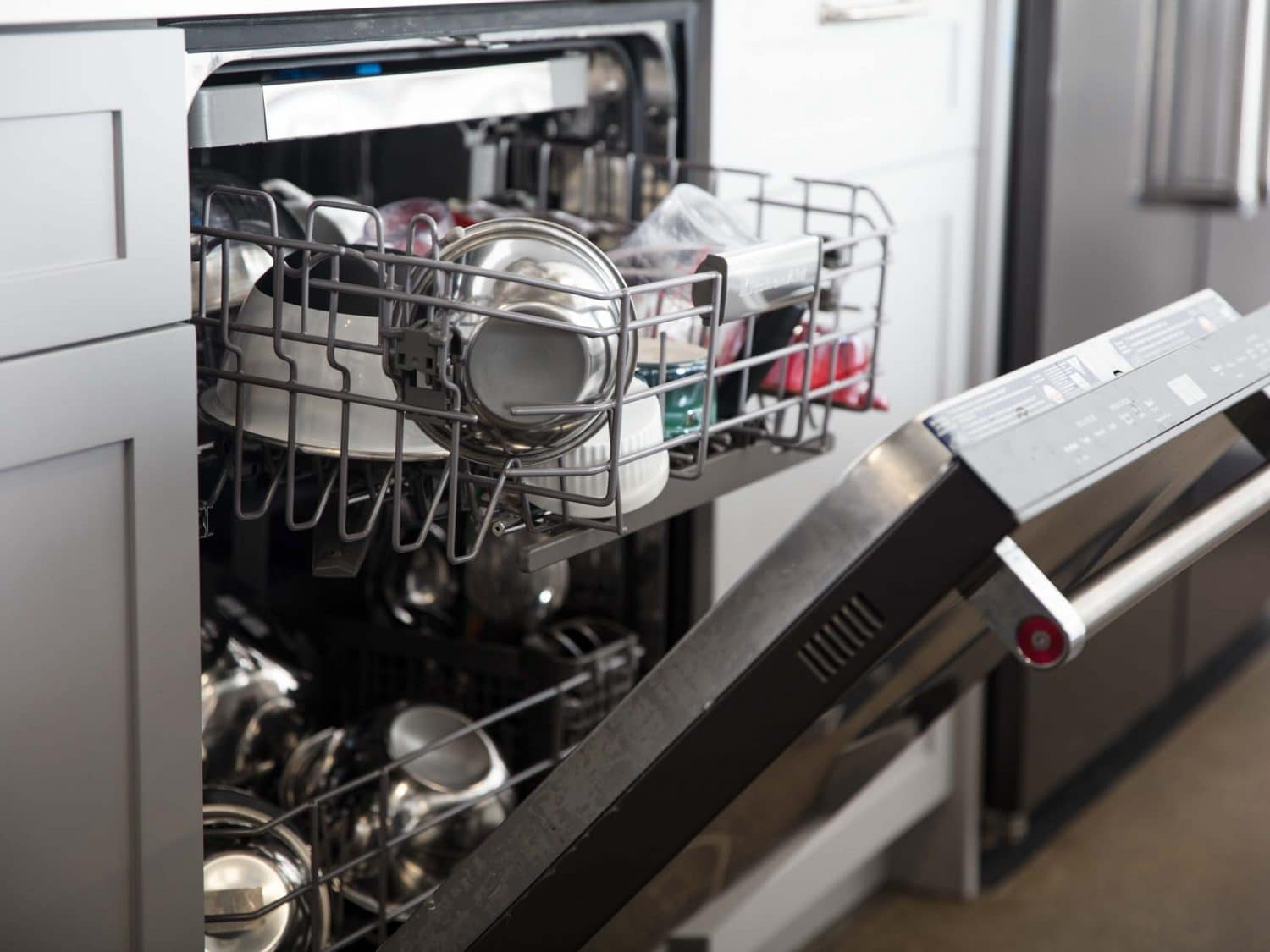Sometimes you will find something that comes out of the dishwasher that will quickly rust once it’s dried. What causes the rust on your dishes?
Proper loading
There are simple rules to follow when loading your dishwasher. If you don’t follow the rules, you may end up with rusting utensils or skillets. Stainless steel utensils such as knives, forks, and spoons are not prone to rust so these can always be placed in the silverware holder inside the dishwasher. If you purchase a cheaper metal, you are most likely going to see some rust. Stainless steel is made to withstand rust which makes it perfect for silverware. Dish detergent, either for the sink or the dishwasher, contains harsh chemicals that can harm metals of many types.
Problems with Silverware and Utensil Placement
Spots of rust can be seen on silverware when you take them out on occasion. This could be a result of the way you place the silverware inside the silverware holder in the dishwasher. First, it’s important that the water be able to flow through the silverware during the washing cycle. Don’t allow the spoons and forks to be placed where they are touching each other. This will trap the water and possibly particles and rust can begin forming. Place the silverware with handles down and the eating part up. If by chance the handles run through the holder and stick out on the other side, adjust the handle where it’s balanced on the inside of the silverware holder.
Mix the silverware up so water can circulated evenly. It’s easy for spoons to get pushed together and this doesn’t allow the water to flow correctly. To avoid this, place a knife, spoon, and fork inside each compartment. Having two types of metal touching each other in these extreme temperatures can cause electrolysis to occur. When this happens, rust will start to form even if you have stainless steel silverware. You may also find rust forming on other items such as a hand held can opener or cooking utensils.
Damaged Dishwasher Prongs
The dishwasher racks offer a coating that overtime can wear away. When this disappears, the metal found underneath will be exposed to water and steam which will cause rust to form. This rust can then travel onto any item you place inside, including stainless steel silverware. It may start as a little speck of rust but if it’s not removed immediately, it will grow and grow until it takes over your silverware and begins eating away at your dishwasher.
Contact us:
 619-928-5000
619-928-5000  Request Service
Request Service 
